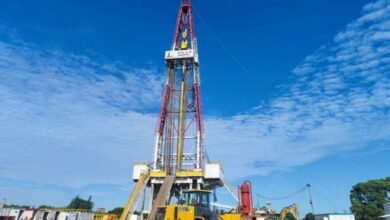New report: Banning fracking could have devastating impact on Texas, American economy
If hydraulic fracturing were banned, Texas could lose 1.5 million jobs and $196 billion in annual GDP by 2022, a new report from the US Chamber of Commerce Energy Institute finds. The fourth installment of the institute’s Energy Accountability Series details the devastating economic impacts that America, especially Texas, could face if the “Keep it in the Ground” movement succeeded in banning hydraulic fracturing for oil and natural gas.
By looking at what could happen if hydraulic fracturing were banned, the report found that the average Texas household could see costs increase by more than $4,632 a year. Nationally, 14.8 million jobs could be lost, and gasoline prices and electricity costs could almost double.
“It’s easy for politicians and activists to call for an end to hydraulic fracturing, but now we know what the consequences could be,” said Karen Harbert, President and CEO of the US Chamber’s Institute for 21st Century Energy. “Without fracking, the US could surrender our status as a global energy superpower. Every American family could face higher prices for the energy they consume and the products and services they buy, and almost 15 million Americans could be out of work. These extreme and irresponsible proposals should not be considered. Ignorance can no longer be an excuse.”
Texas leads the nation in both natural gas and oil production. Over the past five years, the state’s GDP has increased by $13.2 billion and 156,700 new jobs have been created thanks to lower energy prices as a result of the energy renaissance.
“While on its face, ‘keep it in the ground’ policies are intended to punish the energy industry, in reality they punish the entire economy,” Ms Harbert said. “Bringing back energy scarcity means higher energy prices for everyone. Beyond that, banning fracking could make America much more reliant on foreign sources of energy, weakening our national security.”
Using the IMPLAN model, the report modeled changes to the US economy, including real labor income, energy prices, air transportation costs, and energy extraction jobs. The report also breaks down three types of economic shock – higher residential energy costs, higher business energy costs and upstream production losses. Seventeen separate economic sectors – many of which have little to do with the oil and gas sector – could experience hardship as a result of higher prices. Among the most vulnerable are retail and wholesale sectors of the economy.




